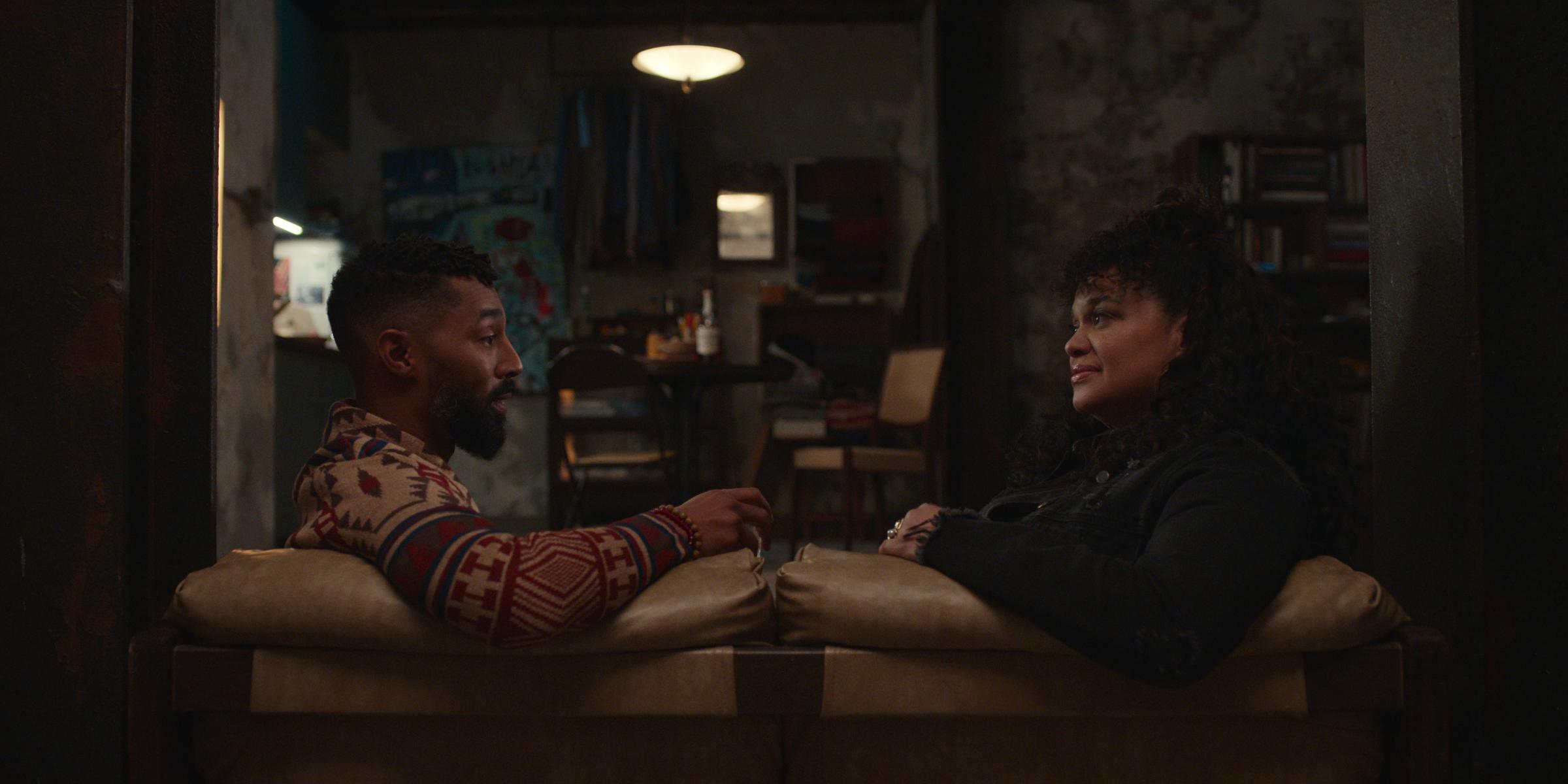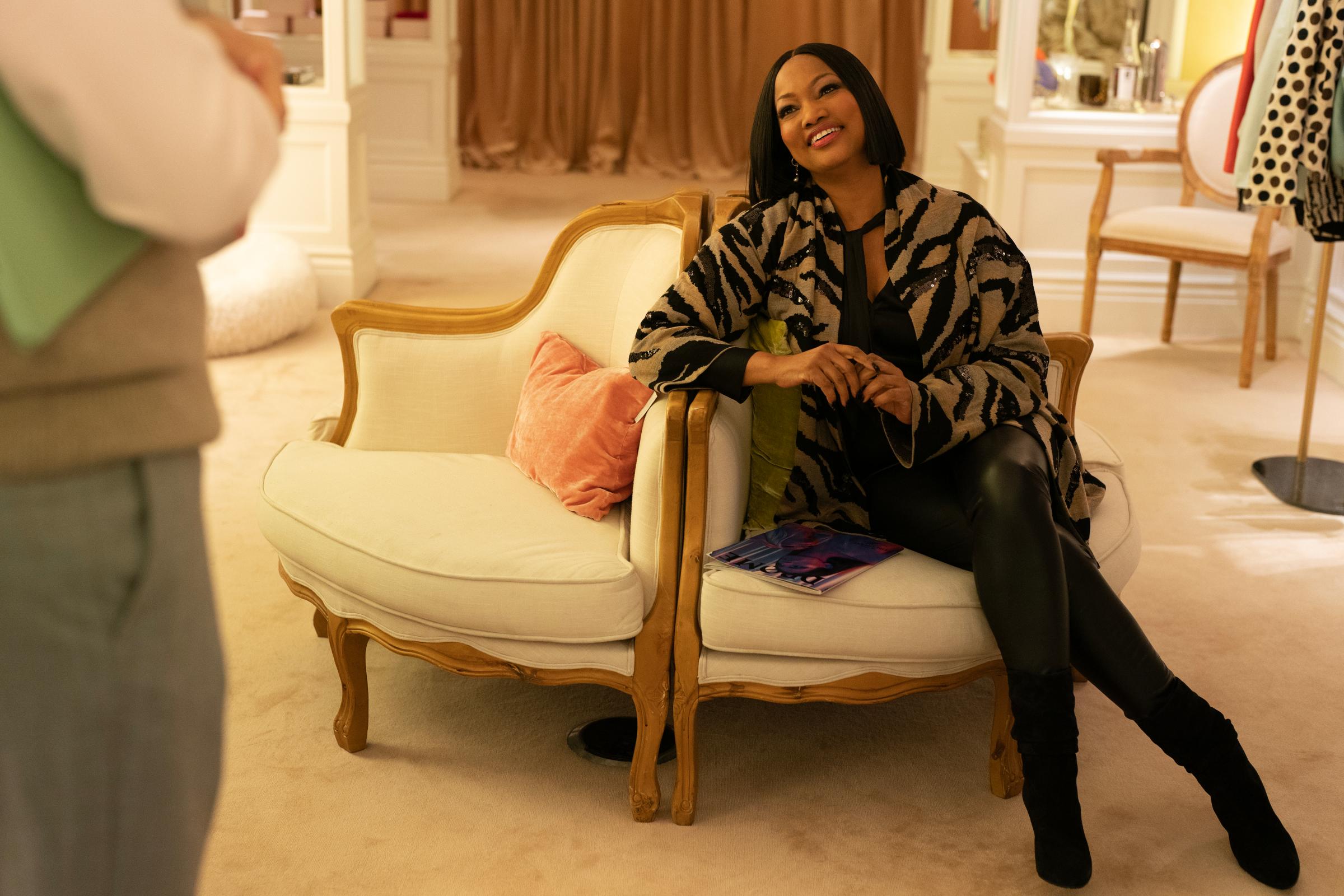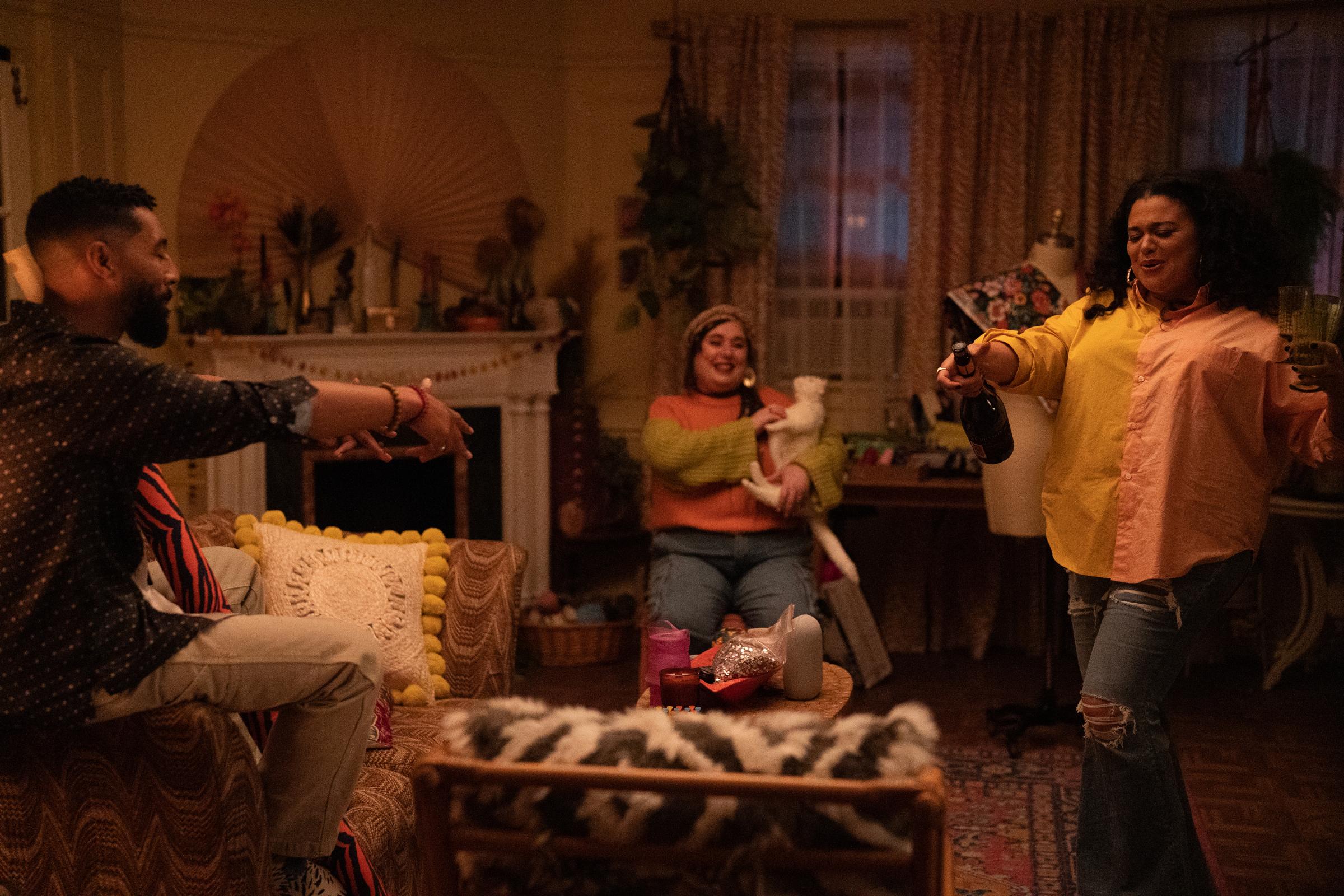Michelle Buteau is funny. She’s been funny in movies like Marry Me, on shows like BET’s First Wives Club, and on podcasts like Adulting. She’s funny all over Netflix, from supporting roles in Always Be My Maybe and Tales of the City to hosting gigs on Barbecue Showdown and The Circle, where her spicy color commentary makes what might otherwise be a boring reality competition worth watching. She was especially funny in a 2020 Netflix stand-up special, Welcome to Buteaupia, expounding on marrying a Dutchman, bathing babies, and learning whose “type” she is (“I am an achievable Beyoncé for government workers”). For years, I’ve wondered why the platform hasn’t made her the star of her own scripted series.
Now it has, and the result doesn’t quite do her justice. Inspired by Buteau’s 2020 book of the same name, Survival of the Thickest casts the comedian as Mavis Beaumont, a stylist struggling to build a career in her photographer boyfriend Jacque’s (Taylor Selé) shadow. That quest takes on new urgency when Mavis—who embraces what she calls her “drumstick-emoji physique”—catches Jacque in their bed with a “skinny-model version” of herself. After years of subsidizing his rise to fame, she’s suddenly single, 38, and in need of her own big break. It’s a pretty dusty starting-over setup, but one that might’ve sufficed had Buteau and her co-creator, Danielle Sanchez-Witzel, subsequently arrived at a clearer vision for the show.

At first, it seems as though Survival will be a rom-com chronicling how Mavis gets her groove back. As comfortable as she is in her skin, Mavis understands all too well how much of the world sees plus-size women. “You know what people say,” she frets to her best friend Khalil (Tone Bell). “Someone cheats on Halle Berry, they’re like: ‘Oh my God, how’d that man cheat on Halle Berry?’ But if someone cheats on someone like me? The thick girl, with problem areas? You’re like: ‘Oh yeah, I get it.’” Yet over the course of the season, Mavis has no trouble attracting admirers. Then an Italian gentleman named Luca (Marouane Zotti) arrives as a cartoonishly perfect dream date, as if engineered to make her feel special. If only he didn’t live an eight-hour flight away.
The show is equally invested in Mavis’ professional life. Stagnating as a perma-assistant, she finally starts going after solo assignments, with a focus on styling people who are too often marginalized by the fashion industry. Garcelle Beauvais is delightfully intimidating as a diva-ish former supermodel who doesn’t want to admit that her dress size has reached the double digits. Nicole Byer, another Netflix mainstay, guest stars as another client: herself. While the execution of these arcs can sometimes slip into body-positivity autopilot (“My launch is all about celebrating thick baddies,” Byer announces), the concept would have been rich enough to fuel a standalone workplace sitcom.

But Survival also wants to be a hangout comedy, weaving in solo story lines as well as group venting sessions for the single friends Mavis leans on after leaving Jacque. Khalil, an artist who’s always ghosting his many hookups, meets a woman who might be worth conquering his fear of commitment. Rebounding after a divorce, Mavis’ girlboss pal Marley (Tasha Smith) explores new frontiers of sexuality. Then there’s Mavis’ new roommate Jade (Liza Treyger, hilarious)—a classic New York weirdo in the tradition of Seinfeld’s Kramer and Broad City’s Bevers, who not only violates boundaries, but also slathers her skin, and thus every piece of furniture, in olive oil.
This isn’t necessarily an overwhelming number of moving parts. But the lack of focus combines with the brevity of a season that runs just eight 25-minute episodes, an inconsistently written protagonist, and the scripts’ pervasive empowerment-feminism platitudes to yield a show that never finds a distinctive voice. Sometimes Mavis comes across as a timid, neurotic train wreck; other times, she oozes confidence and capability. Sometimes Survival, with its Michelle Visage cameo and drag-bar third space, recycles the yas queen inspirationalism of so much current entertainment aimed at female and queer audiences. Unlike the recent Netflix soap Glamorous, however, whose main characters ground the story within the LGBTQ community, the show’s embrace of queer nightlife can feel perfunctory. Just as often, it repeats the affirmations of the 2010s body-positivity movement; “thick girls having a mo’ment” (as in Mo’Nique), Mavis likes to say. A more timely, ambitious comedy might’ve considered the fates of a plus-size stylist and her clients, now that pop-cultural body politics have entered a sad, new, sunken-cheeked Ozempic era.

Maybe the inherently fragmented source material, a book of personal essays, is at the root of the problem. Mavis occasionally speaks in too-perfect polemics: “Why does prom make so many of us feel like outsiders? It’s supposed to be a celebration of life.” And the tone slides around in ways that don’t always make sense. Khalil’s standoff with a coffee-shop Karen kicks off an uncharacteristically somber episode in which the characters reflect on their experiences with racism, yet an anxiety attack that lands Mavis in the hospital is played for laughs.
That the show is relatively easy to stream your way through regardless of all its false notes is a testament to the cast. Bell’s laid-back performance balances out Smith’s intensity, and it’s refreshing to see an uncomplicated platonic best-friendship between a straight woman and a straight man. Beauvais and Treyger make entertainingly colorful antagonists, each just unhinged enough to be surprising. Mavis may not have a coherent personality, but Buteau—a fearless physical comedian as well as a funny storyteller—remains as enjoyable to spend time with as ever. It’s enough to give me hope that, should it get a second season, Survival of the Thickest could, like its heroine, use that fresh start to become what it always had the potential to be.
More Must-Reads from TIME
- Cybersecurity Experts Are Sounding the Alarm on DOGE
- Meet the 2025 Women of the Year
- The Harsh Truth About Disability Inclusion
- Why Do More Young Adults Have Cancer?
- Colman Domingo Leads With Radical Love
- How to Get Better at Doing Things Alone
- Michelle Zauner Stares Down the Darkness
Contact us at letters@time.com